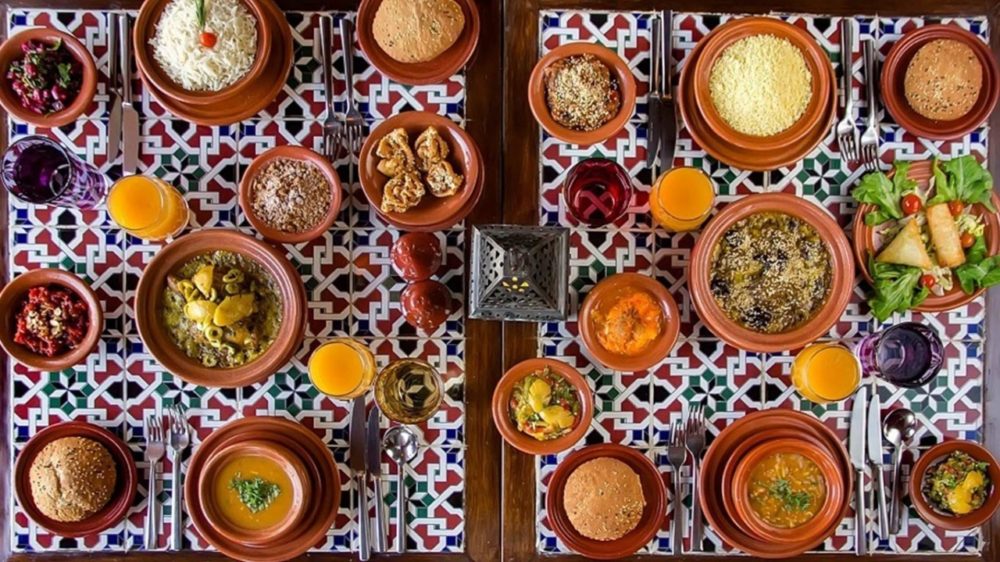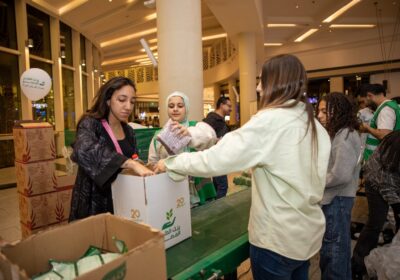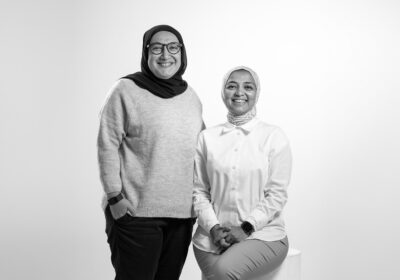Ramadan: the time for compassion and charity under the city lights that sparkle all across and throughout the night as families and friends gather to eat by the Maghrib prayer. This, more often than not, is followed by desserts and meeting up with colleagues at nearby cafes.
Although the holy month is right around the corner on April 23, it may not include the same routine that we all know and love for the first time. With increasing COVID-19 cases in Egypt and around the world, it seems as though Ramadan will be spent in quarantine too.
Yesterday night, Egypt recorded 126 new cases which now makes a total of 2,065 cases with a death toll of 159. Note that 589 who were initially positive have tested negative and 447 have recovered.
Iftar Tables at the Maghrib

Photo from Daily News Egypt
According to Daily News Egypt, the Ministry of Religious Endowments (known as Awqaf) will not allow for Iftar tables this year. Instead, the ministry asked all the charities and individuals who would normally host Iftar tables to provide free meals, to give money or food commodities for those in need.
“We urge good people, charitable committees, associations, and bodies that are into the habit of holding Iftar tables during the holy month to give their charity out in the form of cash or food commodities to the poor and needy before Ramadan,” the ministry said, as published in Ahram.
Iftar tables are a staple in Egypt and most of the Middle East, that hundreds of charities, mosques and wealthy families see as a necessary tradition. But due to COVID- 19 it is best for people to maintain social distancing until the curve flattens.
Tarawih Prayers in Mosques

Photo Taken by Omar Amin for 925Egypt
Around mid-March, the Egyptian Ministry of Awqaf suspended prayers and eventually extended the closure of mosques as a protective measure against the pandemic. Generally, the virus is known to be highly contagious so even during the month of Ramadan, Tarawih prayers will be suspended.
Ahram reported that the “Tarawih will be suspended this year in line with other congregational prayers as the country tries to stem the spread of coronavirus pandemic.”
The ministry explained that mass prayers could easily be a source of virus transmission and that reopening mosques can only happen when there aren’t any COVID-19 cases that could pose a threat.
Generally, people are safer staying at home and this is what the government has been trying to enforce by suspending schools and universities, and shutting down cafes and malls. It is unfortunate that this Ramadan will look, and perhaps feel, different; however, staying home and staying safe is for the good of society.
The Festivities, Family Gatherings & Eating Out

Photo from Koueider
In an article published in Arab News, people who normally go out and buy Ramadan decorations, such as lanterns, for their house are not doing so. One of their interviewees said, “Ramadan without lanterns and decorations isn’t the same. Depriving people of them will prevent them from feeling the Ramadan spirit.”
With restaurants and cafes all closed anyway, the option of eating out with friends, family and relatives is also simply not on the table (pun intended). While the option of delivery is still available, many families doubt whether this is a healthy, safe decision or not.
Generally, there comes a point in Ramadan where no one really wants to cook and delivery becomes the regular with every family member ordering a dish from their favourite restaurant.
Whether or not delivery and food is a source of transmission to COVID- 19 is true, there are ways to handle the process. Once the delivery arrives, remove the food from the packaging, heat it and then place it onto your own plates and use your own forks and knives.
While I don’t think most of us can survive a Ramadan without konafa and other delicious Ramadan-oriented sweets, it is best to caution when purchasing these goods and/or having them delivered to your house. Remember: gloves, masks, alcohol spray and at least 2 meters of space!
Television Series & Empty Billboards

Ramadan Series
While some of us may have seen empty billboards on the road indicating a lack of Ramadan series, that is not quite the case. A lot of production companies have continued operating and working on incredible series for Ramadan.
For instance, Egyptian star Ali Rabie posted a picture of his upcoming series on his Instagram account, Dina El Sherbiny is working on a film about a woman who loses her memory and Synergy is also working on a show called El-Brince featuring Mohamed Ramadan.
At least we’ll be entertained with a long list of television shows while quarantined at home. Stay tuned for an upcoming article on a list of series you absolutely must watch this Ramadan!



























